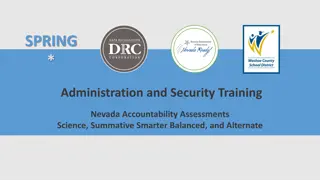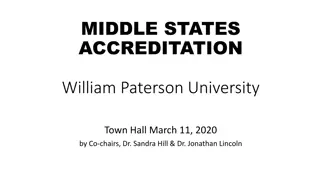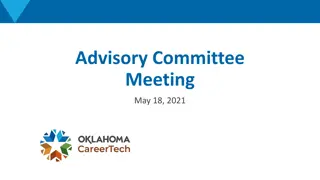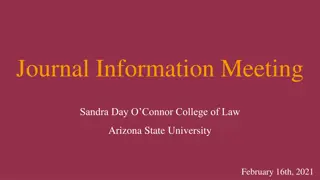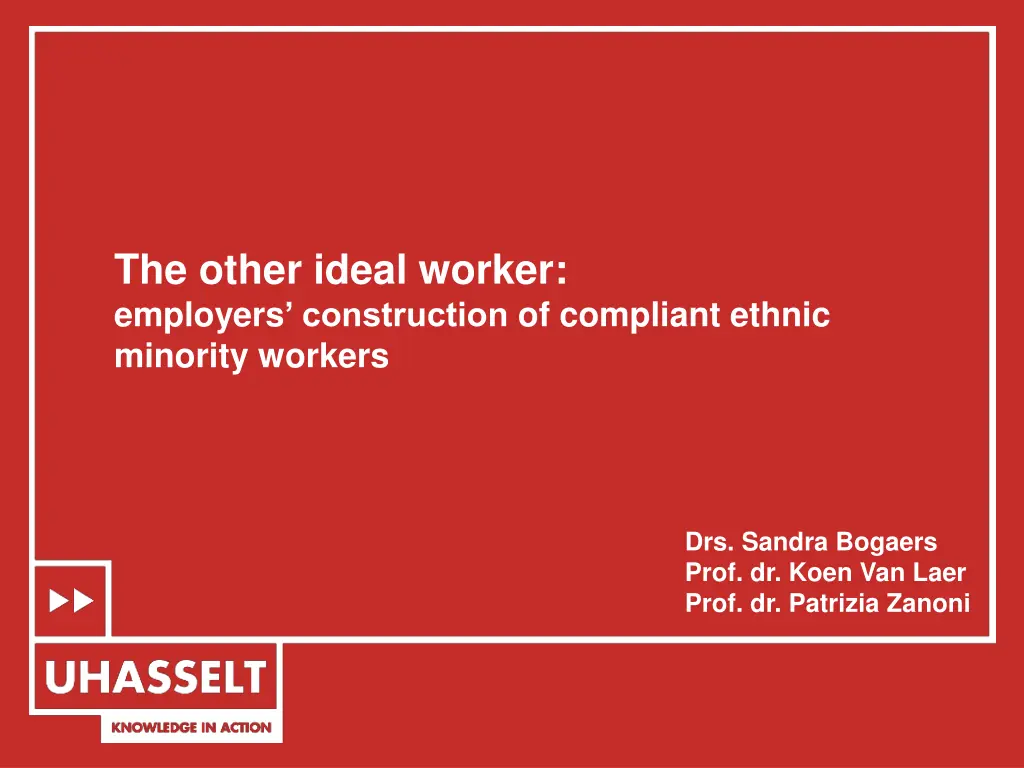
Understanding Employer Constructs of Compliant Ethnic Minority Workers
Explore employer perceptions and constructs of compliant ethnic minority workers in the context of organizational inequality, postcolonial frameworks, and discursive construction in a study conducted in Limburg, Flanders, Belgium. The findings reveal themes of assimilation, gratitude, tolerance, and distancing from one's ethnic group among minority workers employed in low-skilled or technical jobs.
Download Presentation

Please find below an Image/Link to download the presentation.
The content on the website is provided AS IS for your information and personal use only. It may not be sold, licensed, or shared on other websites without obtaining consent from the author. If you encounter any issues during the download, it is possible that the publisher has removed the file from their server.
You are allowed to download the files provided on this website for personal or commercial use, subject to the condition that they are used lawfully. All files are the property of their respective owners.
The content on the website is provided AS IS for your information and personal use only. It may not be sold, licensed, or shared on other websites without obtaining consent from the author.
E N D
Presentation Transcript
The other ideal worker: employers construction of compliant ethnic minority workers Drs. Sandra Bogaers Prof. dr. Koen Van Laer Prof. dr. Patrizia Zanoni
Background: ethnic organisational inequality Cultural explanation Economic explanation compliant ethnic minority worker = connected to the normative pressure of the ethnic majority, supressing their ethnicity compliant ethnic minority workers = connected to their willingness to subordinate in the employment relation, originating from their ethnicity macro-economic and socio-political vulnerabilities subordinated position in the employment relation broader societal and political discourses culturally inferior to ethnic majority downplays economic relations of power in organisations downplays cultural constructions of ethnic minorities
Background: postcolonial framework links economic and cultural power relations the Other = an object of knowledge = constructed as the binary opposition moral justification of claiming the right to have authority over the Other Bhabha ~ inherent contradiction in colonial discourse Mimicry ensures regulation and control by colonizer AND area for resistance of the colonized to maintain hierarchy: repeated fixed subjectification of the colonized
Methodology Discursive construction of compliance Limburg, Flanders, Belgium History of low-skilled immigration Characterised by highly ethnically diverse population 22 semi-structured interviews with employers Diversity size & sector, reflecting the region Employers ethnic majority Employees ethnic minority employed in low-skilled or technical jobs Analysis: open, two phase coding (Salda a, 2009)
Findings and discussion Employer s construction of a compliant ethnic minority worker : assimilation to ethnic majority behaviour gratitude towards employer tolerance for discriminatory remarks distancing from own ethnic minority group
Findings and discussion Assimilation to ethnic majority behaviour It sounds racist, but it is not. You have to make a selection [ ] Getting the right people. What I would find horrible, is if we would have somebody who brings his little carpet to the building site and starts praying. We don t want that here. I m like, you have to adapt yourself. They have to adapt themselves. Employer 10 It s immediately a much greater challenge, a headscarf. [ ] It s just a too large difference. It s very clear. If you have somebody walking with you, and they don t eat, that doesn t bother you. But a headscarf is immediately visually very present. Employer 13
Findings and discussion Gratitude towards employer People with a migration background [ ] they are happy that they found work. They are grateful that they found work and are loyal. - Employer 17 So I tell in a job interview that once another worker was stuck in a sewage pit. If they hadn t pulled him out, he would have been death [ ] And so I tell these stories to give a heads-up, but then, to come back to diversity and migration background: after hearing this, they didn t want to work here anymore. I guess they just don t have the motivation to want to work Employer 4
Findings and discussion Tolerance for discriminatory remarks I have no prejudice, but not everybody is like that [ ] I almost experience racism myself if what I say is understood wrongly [ ] We have a friend and he has a Moroccan as employee [ ] I also want such people. You can say to him: Ali, you are not wearing your bombs belt today , and he can laugh with that Employer 3 We really hear clients sometimes say go back to your country and go work for ISIS , you hear that once in a while. [ ] but we need all the customers we can get [ ] We ask our employees if they can handle that. Do you think you are strong enough to handle such remarks? Employer 1
Findings and discussion Distancing from own ethnic minority group We had the feeling that the amount of Turks increased in the company [...] then suddenly, those people really started to stand together during breaks [ ] They are one big family. If you have one against you, you have them all against you. They gang up on you Employer 8 Because together, they feel strong and they start expressing that. [ ] Then you get a cultural problem. They don t accept your authority anymore. So we limit the amount of Turkish and Moroccan people in one team. I m not saying that they are all like that. There are also good ones among them. Employer 18
Findings and discussion Construction of the compliant ethnic minority worker = embedded in coloniality of power Authorised version of otherness Cultural division of labour Continuous repetition of differences Disallowing empowerment & agency ~ ambivalence of ethnic minority = desire for a revised Other almost the same, but not quite Bhabha, 1994:86 equally construction of the ethnic majority be the father and the oppressor - Bhabha, 1994: 95 Resistance possiblebetween employer s expectation & ethnic minority s response
Findings and discussion Other Ideal Worker = simultaneous economic and cultural subordination + active disavowal of resistance through attributes Assimilation Not undermining the status-quo of the majority s culture and employer s dominating self Gratitude Recognises of the employer s self and the morality of the colonial system Acceptance discriminatory remarks Accept the employer as the authorised manager of the Other s identity Distancing Not posing a threat by collectivisation of Otherness
For further discussion Drs. Sandra Bogaers sandra.bogaers@uhasselt.be


